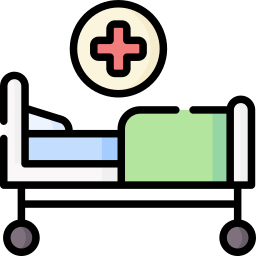


Fortis Hospital, Vasant Kunj - The Department of Orthopaedics is dedicated to providing comprehensive care for patients with a wide range of musculoskeletal conditions. Fortis Hospital, Vasant Kunj have a well-rounded orthopedic department with a focus on providing comprehensive care for patients of all ages, from pediatric cases to complex trauma situations. The experienced team and specialized services enable to address a wide range of musculoskeletal conditions and help patients regain their mobility and quality of life.
Why Choose Us
-
Expert Care from Board-Certified Orthopaedic Specialists
-
✅ 30+ Years of experience expert
-
✅ 5000+ Successful Knee Surgeries
-
✅ Green OT Certification
-
✅ NABH Certified Nursing Excellence
-
✅ Ranked No. 7 in Delhi’s Best Private Hospital by The Week Magazine Survey, 2019
-
✅ Fortis Hospital Vasant Kunj has been ranked 15th in India list of World Best Hospital by Newsweek
-
NABH Accredited Patient Care Services | Blood Bank | LAB
Our Team of Experts
FAQs
-
What is a orthopaedic do?An orthopedic surgeon (also known as an orthopedic doctor or orthopedic for short) is a specialist who focuses on conditions that affect your musculoskeletal system.
-
What is orthopedic doctor called?An orthopedist (also called orthopaedist) is a medical specialty that focuses on injuries and diseases affecting your musculoskeletal system (bones, muscles, joints, and soft tissues). Although this type of doctor is a surgeon, they often help people find relief with non-surgical treatments.
-
How is orthopedic treated?Orthopedic treatment for all your joint and bone problems Basically, this orthopedic surgery procedure is used by professionals to visualize, diagnose and treat the entire problem within the joint itself. Generally, there are six different types of joints that are examined using this type of surgery namely – knee, shoulder, ankle, elbow, wrist and hip.
-
What are orthopedic problems?Chronic orthopedic conditions, such as arthritis and bursitis, affect the musculoskeletal system – usually the bones or joints. They can cause pain and dysfunction, making even normal daily activities difficult.
-
Is orthopedic curable?Some orthopedic malocclusions are treatable, and some cannot currently be cured, but can be treated to reduce pain and improve quality of life. Getting a symptomatic diagnosis and targeted treatment can help shorten the prognosis - even in late stages without treatment.
The Nephrology department at Fortis Hospital, Manesar, Gurugram stands as a leading hub for excellence in the diagnosis, treatment, and management of kidney-related ailments. It is staffed by a dedicated team of skilled nephrologists committed to offering thorough care for patients with diverse kidney conditions.
Adopting a patient-first approach, the department prioritizes personalized care, tailoring treatments to meet the unique needs of each individual. The nephrology team employs cutting-edge diagnostic tools to precisely identify kidney disorders, efficiently managing a wide array of conditions such as glomerular diseases, tubulointerstitial diseases, nephrotic syndrome, diabetic kidney disease, and polycystic kidney disease.
The department is also equipped with state-of-the-art dialysis services for patients facing end-stage kidney failure. With advanced dialysis machines, they offer a range of dialysis treatments, ensuring the highest standard of care and close monitoring.
Our Team of Experts
FAQs
-
What is Nephrology?Nephrology is a branch of medicine dedicated to the identification, treatment, and management of diseases and conditions affecting the kidneys.
-
What are some common kidney diseases?Some of the most prevalent kidney conditions are chronic kidney disease (CKD), glomerulonephritis, polycystic kidney disease (PKD), kidney stones, urinary tract infections (UTIs), and kidney cancer.
-
What are the symptoms of kidney disease?The symptoms of kidney disease can differ based on the underlying condition, but typical signs include alterations in urine frequency and color, blood in the urine, tiredness, swelling in the legs or ankles, high blood pressure, and a reduced appetite.
-
How is kidney disease diagnosed?Diagnosing kidney disease requires a thorough assessment that includes reviewing the medical history, conducting a physical examination, performing laboratory tests (such as blood and urine tests), utilizing imaging techniques (like ultrasound or CT scans), and occasionally, performing a kidney biopsy.
-
Can kidney disease be prevented?Certain kidney diseases can be prevented or their progression slowed by making lifestyle changes, such as eating a balanced diet, staying active, controlling blood pressure and diabetes, limiting alcohol intake, and avoiding smoking.
-
What are the treatment options for kidney disease?Treatment for kidney disease varies based on the specific condition but can involve medication, lifestyle adjustments (like changes in diet), blood pressure management, dialysis (either hemodialysis or peritoneal dialysis), and in some cases, kidney transplantation.
-
How often should someone with kidney disease be monitored?The frequency of monitoring kidney disease varies based on its stage and severity. Typically, people with kidney disease should have regular appointments with their nephrologist and undergo routine blood and urine tests to assess kidney function.
-
Can kidney disease be cured?The potential for curing kidney disease depends on its underlying cause. Certain conditions, like specific kidney infections or reversible acute kidney injuries, can be treated successfully. However, chronic kidney disease typically requires continuous management and may advance to end-stage renal disease, which may require dialysis or a kidney transplant.
The General Surgery Department at Fortis Hospital, Manesar is a shining example of excellence, dedicated to delivering comprehensive and advanced surgical care. Known for its highly skilled and experienced team of surgeons, the department places a strong emphasis on a patient-focused approach, crafting personalized treatment plans to meet the unique needs of each individual.
With access to state-of-the-art facilities and the latest in surgical technology, the Fortis General Surgery Department ensures the best possible outcomes for a diverse range of procedures. Whether performing routine surgeries or complex interventions, the department upholds the highest standards of safety and effectiveness.
Fortis' team excels not only in traditional surgical methods but also leads the way in adopting minimally invasive techniques, helping reduce patient discomfort and speeding up recovery times. Their commitment to ongoing education and training keeps the surgeons at the forefront of the latest innovations in the field, ensuring that patients benefit from the most cutting-edge surgical options available.
Additionally, the Fortis General Surgery Department places great importance on compassion and empathy, creating a supportive healing environment for all patients. The seamless combination of expert medical care, advanced technology, and a patient-first philosophy makes Fortis a distinguished leader in general surgery, continually striving to improve the health and well-being of the community it serves.
Why Choose Us
-
Highly skilled and experienced general surgeons
-
Comprehensive range of surgical procedures
-
State-of-the-art facilities and advanced technology
-
Multidisciplinary approach for personalized care
-
Focus on patient safety and quality outcomes
-
Compassionate and supportive healthcare team
-
Continuum of care from diagnosis to post-operative follow-up
-
Commitment to excellence in surgical outcomes and patient satisfaction
Our Team of Experts
FAQs
-
What is General Surgery?General surgery is a medical discipline focused on conducting surgical procedures to address various conditions that impact multiple areas of the body.
-
What conditions do General Surgeons treat?General surgeons are skilled in managing a variety of conditions, such as appendicitis, hernias, gallbladder issues, tumors, gastrointestinal disorders, and thyroid-related problems, to name a few.
-
What types of surgeries do General Surgeons perform?General surgeons carry out a diverse array of procedures, such as appendectomy, hernia repair, cholecystectomy (gallbladder removal), colon resection, breast surgery, thyroidectomy, and tumor removal.
-
When should I see a General Surgeon?You might need to consult a general surgeon if you have a condition that requires surgery, such as ongoing abdominal pain, a hernia, gallstones, breast lumps, or gastrointestinal issues.
-
What can I expect during a General Surgery consultation?In a consultation with a general surgeon, they will review your medical history, conduct a physical exam, and request any required tests or imaging to make an accurate diagnosis and create a suitable treatment plan.
-
Is General Surgery performed under anesthesia?Yes, general surgery is usually carried out under anesthesia, ensuring you remain comfortable and free of pain throughout the procedure.
-
What is the recovery process like after General Surgery?The recovery process following general surgery differs based on the procedure performed. It may include a hospital stay, pain management medications, follow-up visits, and post-operative care instructions from the surgeon.
-
Are there any risks or complications associated with General Surgery?Like any surgery, there are risks and potential complications. However, general surgeons are highly skilled experts who take extensive measures to reduce risks and prioritize patient safety.
-
How long does it take to recover from General Surgery?Recovery time after general surgery varies based on the procedure's complexity and individual factors. Your surgeon will give you detailed instructions on post-operative care and an estimated recovery timeline.
-
Why should I choose Fortis Hospital Manesar for General Surgery?Fortis is recognized for its team of skilled general surgeons who offer comprehensive care, utilize advanced surgical methods, and provide state-of-the-art facilities, all while maintaining a patient-centered approach to achieve optimal outcomes for those undergoing general surgery.
